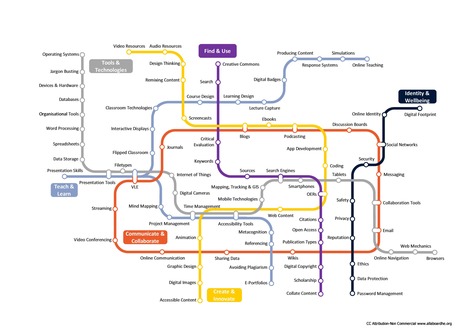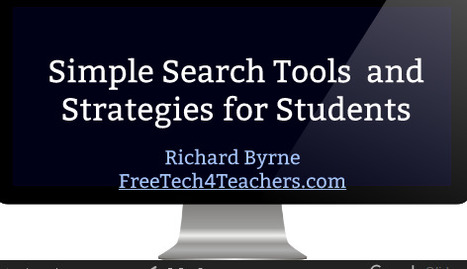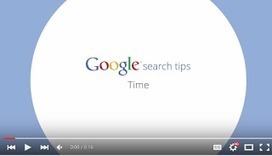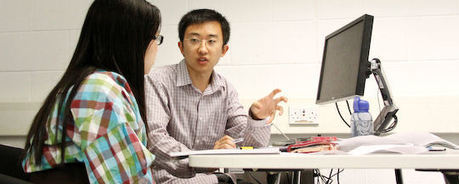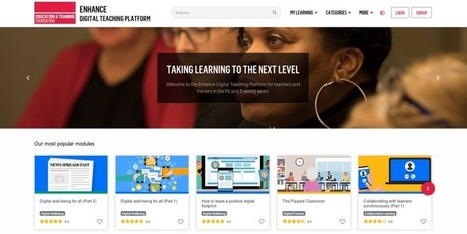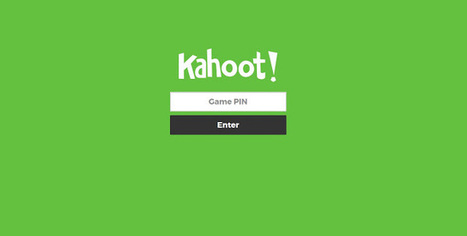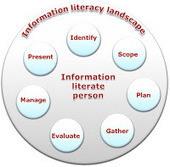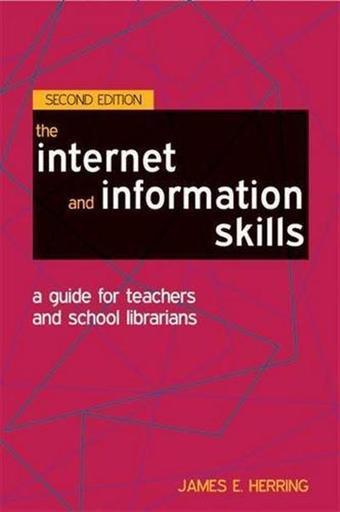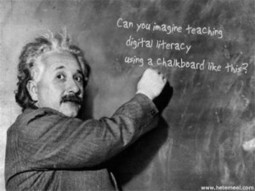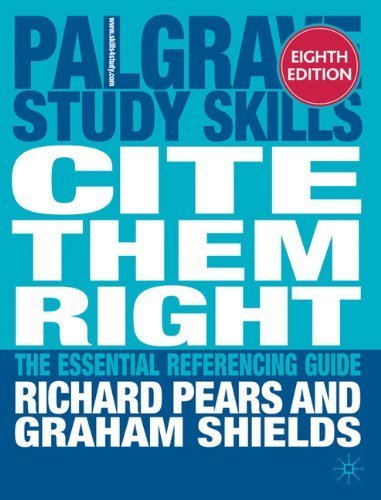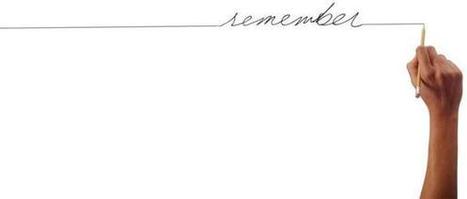A free online webinar on 16 August 2021 at 1pm US Central time (which is, for example, 7pm UK time) is Considering Data Literacy Using Kuhlthau's Information Search Process: Implications for Librarians and Data Providers, presented by Charissa Jefferson, Kristin Fontichiaro, Katrina Stierholz, and Lynette Hoelter and sponsored by the ACRL ULS Professional Development Committee.
"This panel discusses uses of Kuhlthau's Information Search Process (ISP) to illustrate ways that librarians can assist students and collaborate with data providers to improve the data search process. Librarians and data providers share similar data literacy goals, and this panel pools the expertise of both groups to focus on strategies and interventions that support novice researchers.
Get Started for FREE
Sign up with Facebook Sign up with X
I don't have a Facebook or a X account

 Your new post is loading... Your new post is loading...
 Your new post is loading... Your new post is loading...
Current selected tag: 'information skills'. Clear
Academic libraries spend a lot of time and energy thinking about student learning. A 2016 Ithaka survey of library deans and directors indicate that they perceive the most important role for the library is “helping undergraduate students develop research, critical analysis, and information literacy skills,” with “supporting and facilitating faculty teaching activities” coming in as a close second. A recent round up of projects in the Assessment in Action projects that are intended to demonstrate the value of libraries do so almost exclusively in terms of student learning (or, to use the new buzz phrase, “student success” which isn’t exactly the same, but seems to please administrators more). Countless hours are being spent on interpreting and implementing the new Framework for Information Literacy which has some ambitious ideas about what students should learn
All Aboard is rising to the challenge identified in the national Digital Roadmap of building our ‘digital capacity,’ not just in terms of infrastructure, but also in terms of people, their skills, their levels of confidence and their ability to critique and challenge pre-conceptions. Via Nik Peachey 
Willem Kuypers's curator insight,
November 14, 2016 5:02 AM
Idéé originale pour représenter les compétences digitales.

Daniel Collins's curator insight,
January 18, 2017 12:02 AM
A really useful map of a range of digital skills necessary for higher education.
The slides that I used today were an updated version of slides that I have previously shared here on Free Technology for Teachers.
(2013). Information Literacy for Health Professionals: Teaching Essential Information Skills with the Big6 Information Literacy Model. Community & Junior College Libraries: Vol. 19, No. 3-4, pp. 77-91. doi: 10.1080/02763915.2014.953435 Health professionals frequently do not possess the necessary information-seeking abilities to conduct an effective search in databases and Internet sources. Reference librarians may teach health professionals these information and technology skills through the Big6 information literacy model (Big6). This article aims to address this issue. It also exposes the possibilities of applying the Big6 model in health sciences libraries and other informational contexts, based on several instances of successful integration of this model into information literacy programs in health sciences environments as well as several instances of using the model for solving diverse information problems within this context. This model promises to be practical for reference librarians and information professionals who are interested in a different approach to instructional and information literacy work in health sciences libraries, thus the paper suggests to take a closer look at Big6.
Teaching students how to conduct smart search queries online is an important part of cultivating a digital citizenship culture within your classroom. Smart searching goes beyond the simple ability to conduct quick search queries to how to effectively locate information online and assess their authenticity and accuracy. In other words, smart searching encompasses a complex set of interrelated skills and competencies that together make up the holistic picture of what it is to be a search savvy netizen.
Criteria to apply to evaluating both traditional and open web resources, including authority, timeliness, bias, and accuracy/credibility of content.
Researchers and their organisations may feel that Instagram does not fit well into their online communication efforts, but in this post Betty Allen argues it could prove to be a handy weapon when communicating research.
Information literacy is a vital yet under-appreciated part of education. Its advocates recognize it as the foundation for lifelong learning, and as a set of skills that must be developed throughout a person's education. Within academia at large, however, it is barely recognized at all. This paper discusses information literacy in the context of MOOCs, particularly of the connectivist variety. Models of information literacy and their accompanying standards are examined to establish connections to lifelong learning. The spectrum of MOOCs is discussed briefly, with an emphasis on connectivist MOOCs (cMOOCs) and their associated learning activities. These learning activities are then mapped to the information literacy standards of the Association of College and Research Libraries as a way of visualizing the relationship between the two. Several specific MOOCs are discussed with regards to their particular information literacy connections. This analysis of MOOCs shows that information literacy skills play a significant role in MOOC participation. Demographic studies of MOOCs show further that the majority of the participants can be expected to have well-developed information literacy skills. It is concluded that MOOC developers should give consideration to the role of information literacy in MOOCs.
When we ‘research’ things now, we generally aren’t referring to spending time in a library – or even referring to spending time online accessing specific library or school research databases. The word ‘research’ largely refers to the act of typing words into your internet search bar and seeing what the Wise Old Web tells you. …
Skills@Library supports students, researchers and staff to enhance their learning, teaching and research
Featuring: Edina Celjaj, Jason Jeremias, Lawrence Mays Production Staff: Louis Carrasco, Daniel Cestone, Nicole Johnson, Keren Minto, Woodz Monestime, Angel ...
Lehman College library recently put a short video, Just Because You Put It In Your Own Words..., reminding people about the need to acknowledge sources even when not directly quoting - I like the introductory conversation with the three students (where one person is "paraphrasing" another person's anecdote)
The Definition Of Digital Literacy
When we think of digital literacy, we usually think of research–finding, evaluating, and properly crediting digital sources. The “research” connotation makes sense, as it is the sheer volume of sources and media forms on the “internet” that stand out. But we are living in a world where the internet is disappearing, replaced by sheer connectivity. Are you “on the internet” when you tweet? Skim through a social reader like Flipboard? Send a text? Mark up a pdf and sync it with the cloud so you can access it later? Are the cloud and the “internet” the same thing? |
Will you be involved in delivering the roll out of new courses to support the upcoming Essential Digital Skills (EDS) entitlement for adults aged 19 and over?
A blog about creativity and innovation in the library at the University of York. Throughout the Autumn Term, the Academic Liaison Team have been using the online quiz software Kahoot in Induction talks and workshops. I have used it in both undergraduate and postgraduate teaching sessions and have found that it offers an interesting and engaging option for delivering information about the Library and Information Literacy to students studying at all levels and stages.
In 1999, The SCONUL Working Group on Information Literacy published “Information skills in higher education: a SCONUL position paper” (SCONUL, 1999), introducing the Seven Pillars of Information Skills model. Since then, the model has been adopted by librarians and teachers around the world as a means of helping them to deliver information skills to their learners. The model was revised in 2011, and then reviewed in 2015.
Improving Students' Web Use and Information Literacy free download
As a result of recent learning and teaching developments, teachers are being trained to use ICT to develop more innovative teaching methods, and students are invariably required to use electronic information resources as part of their assignments. Networked internet access is now the norm in both primary and secondary schools, available not only in the school library but in computer suites and classrooms. Teachers and school librarians are increasingly aware that information literacy is a key skill needed by today's students, who are tomorrow's workers within the knowledge economy. The need for educators to understand how to help students to become effective information users is paramount. This book offers teachers and school librarians the means to exploit the internet effectively both as a learning and a teaching resource; in particular to hone their skills in accessing the most relevant parts of the internet to provide suitable information sources to aid students' learning. It offers valuable insights into information literacy and provides helpful examples of the most effective ways of teaching information skills. The book is a vital resource for all teachers and school librarians, and is relevant in all areas of the world. It is equally of use to head teachers and to professional educators and managers up to further education level. It should be on reading lists of all education institutions offering teacher training courses.
The homepage of University of Sheffield Library's information skills resource. Sections are: - Starting - Searching - Writing - Subject-specific support - Referencing - Dissertation - Researchers
Definition and types of plagiarism, including buying term papers, copying and pasting without attribution, and paraphrasing without attribution. Tips for MLA...
Maggie Philbin (yes, THAT Maggie) recently published a report about digital literacy skills in the UK. I agreed with much of what she said, except that I thought she forgot to make a key point: tha...
Today’s students may be skilled at texting and social media, but many are unable to perform online research and distinguish accurate information on the web, according to a new study.
Elizabeth E Charles's insight:
Yes 'digital natives' DO need information/digital literacy training to provide the skills that they lack.
Full study available here: http://onlinelibrary.wiley.com/doi/10.1002/rrq.85/pdf
Intelligence and the development of methodological skills in higher education: The case of information literacy
Widely understood to be essential to success in the workplace and modern life, digital literacy is beginning to emerge as a necessary component of curric
Guide to referencing and avoiding plagiarism for Sixth Formers at King Edward VI School
It’s hard to blame students for wanting to type notes instead of write them out longhand. Think of how much quicker you can type an e-mail than write a letter: Digital note-taking is simply easier. A paper published online in the journal Psychological Science last month, however, suggests that longhand may actually hold an advantage when it comes to the most important reason we take notes—that is, to help us remember what we’ve heard. What Pam Mueller of Princeton University and Daniel Oppenheimer of UCLA’s Anderson School of Management observed is an illuminating example of what psychologists call “desirable difficulty”—the fact that sometimes, obstacles that frustrate us actually help us learn. |






